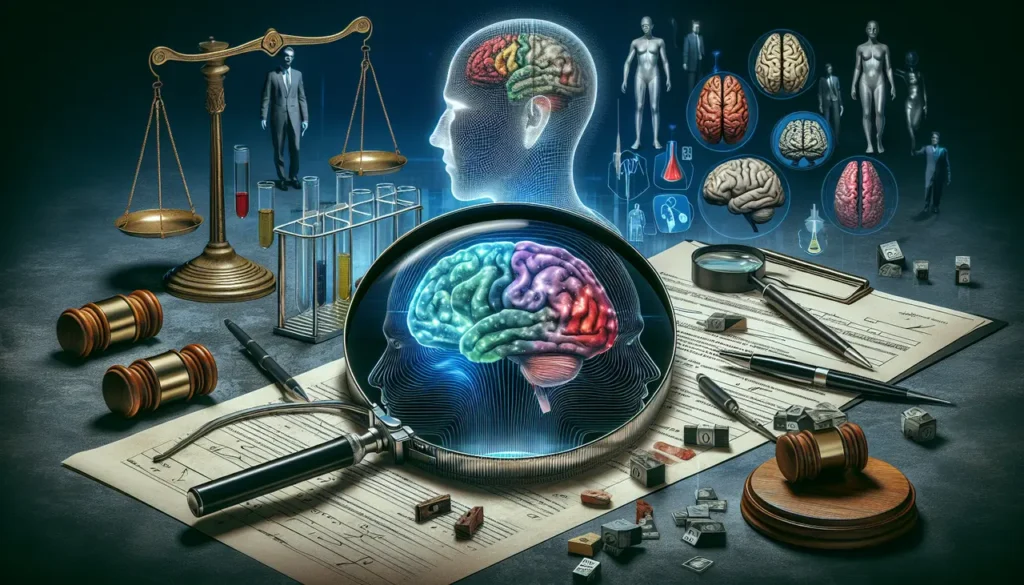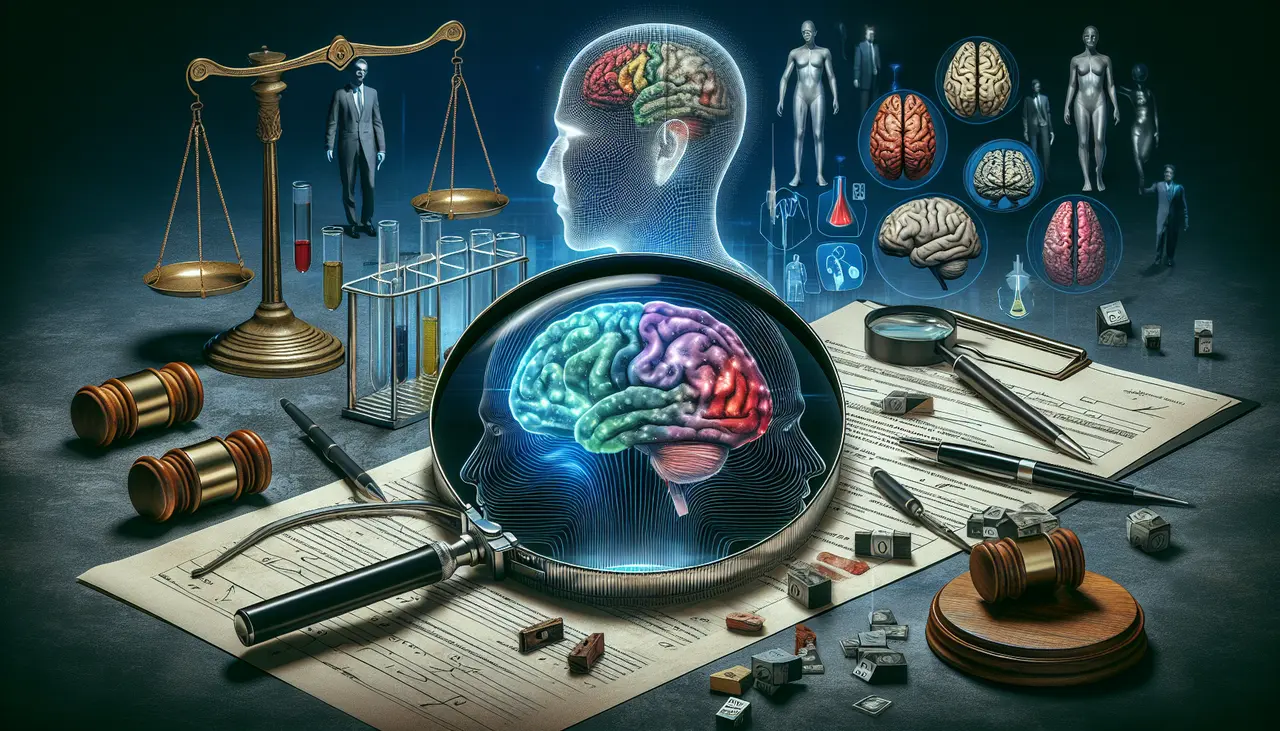Introduction to Forensic Psychology
Forensic psychology isn’t just what you see on TV. It’s a real field where psychology meets the law. Think of forensic psychologists as the bridge between understanding the mind and applying that knowledge to legal cases. In simple terms, they get why people do what they do and help the courts figure that out too. These experts play with the big questions like why crimes happen, or what goes on in the mind of someone breaking the law. They also have a big role in deciding the fate of criminals, not by giving sentences, but by helping judges understand if someone can stand trial or how likely they are to commit another crime. It’s a job that looks deep into human behavior, using that insight to make our legal system work better. Forensic psychology isn’t for the faint of heart. It demands a solid understanding of both psychology and the law. If unraveling the mysteries of the mind and applying it to solve real-world puzzles sounds like your thing, you might just be cut out for this. But remember, it’s not all about the drama and suspense; it’s about making a difference in the courtroom and beyond.
The Role of a Forensic Psychologist
Forensic psychologists dive deep into the human mind, but they don’t do it in ways you might think. It’s not about lying on a couch talking about your feelings. Instead, these professionals stride into the heart of the legal system to untangle the complex web of human behavior and law. They have a few critical tasks. First, they assess individuals involved in the legal system to determine their mental health and competency. Imagine trying to figure out if someone understands the difference between right and wrong or if they can stand trial. That’s their job. They also offer expert testimony in court. Picture them standing before a judge, helping to make sense of a defendant’s mental state and how it might impact their actions. Plus, they play a big role in criminal profiling, which is like putting together a puzzle of the human psyche to catch suspects. Behind the scenes, they’re busy designing intervention programs for offenders to ensure they don’t re-offend, essentially aiming to weave safer communities. From assessing defendants and working with victims to advising legal teams, forensic psychologists are the bridge between psychology and the law, providing insights that are vital in the pursuit of justice.
Key Areas of Study within Forensic Psychology
Forensic psychology digs into the crossover between psychology and the law. It’s all about understanding how the human mind works in legal contexts. So, what do forensic psychologists study? Criminal behavior is a big part. They look at why people commit crimes and how to prevent them. Then there’s victimology, the study of victims and the effects of crime on them. Legal processes are also key. Forensic psychologists need to know how the legal system works, including trial processes and how juries decide cases. Another area is the assessment and treatment of offenders. This involves evaluating offenders’ mental health and finding the best ways to rehabilitate them. Finally, eyewitness testimony is crucial. It’s all about how reliable people’s memories are when they witness a crime. These areas help forensic psychologists play a vital role in the justice system, offering insights that can lead to fairer outcomes.
How Forensic Psychology Helps Solve Crimes
Forensic psychology plays a critical role in solving crimes. It bridges the gap between psychology and the justice system. Imagine having a detective’s mind but with a deep understanding of human behavior and thinking. That’s what forensic psychologists do. They dive into the minds of suspects and victims to unearth clues. Here’s how they make a difference. They profile criminals, which means they analyze patterns to predict and catch offenders. Through interviews and psychological testing, they understand the motives and behaviors of criminals. They also assist in jury selection, making sure the chosen individuals can judge fairly, free from biases. Forensic psychologists play a part in evaluating mental competency, determining if a suspect understands their trial and can participate in their defense. Their expertise doesn’t just stop at solving crimes. They also work on rehabilitating offenders, helping them reintegrate into society. In simpler terms, forensic psychologists are the bridge between catching criminals and understanding them, making sure justice is served both wisely and compassionately.
The Relationship Between Forensic Psychology and the Legal System
Forensic psychology plays a key role in the legal system. It’s like a bridge between the study of the mind and the rules of the law. Forensic psychologists have a big job. They assess people involved in the legal system in various ways. For example, they might look into the mental state of someone accused of a crime to see if they were capable of understanding their actions. They also help in court by providing expert opinions. This can influence decisions on guilt, sentencing, or even if someone needs mental health treatment instead of punishment. Their work doesn’t stop there. They’re involved in custody disputes, helping to decide what’s best for children, and they assess witnesses to see if they’re reliable. Forensic psychologists use their skills to make sure the legal system works fairly, blending science and law to get to the truth.
Educational Path and Requirements to Become a Forensic Psychologist
To step into the world of forensic psychology, you gotta hit the books hard. Start with a bachelor’s degree in psychology or criminology. This sets the stage. After that, a master’s degree in forensic psychology is the key, but it doesn’t stop there. Most of the time, you’re looking at needing a doctoral degree in psychology, and it’s smart to pick one that focuses on the forensic side. This journey can take a solid 7-10 years of higher education after high school.
Next, getting hands-on experience through internships or working in settings like mental health facilities, prisons, or law enforcement agencies is crucial. You learn the ropes, get a real feel for the job, and start applying what those textbooks taught you.
You also need to get licensed to practice as a psychologist in your state. This means passing an exam that proves you know your stuff. And don’t forget about continuing education; it keeps you sharp and in the know about the latest in forensic psychology.
Remember, it’s not just about the degrees or ticking boxes. Being a forensic psychologist requires a mix of smarts, guts, and heart. You’ll be dealing with some tough situations and helping solve cases that can be pretty intense. But, if this is your calling, the effort is worth it. You’re not just working a job; you’re making a difference.
Tools and Techniques Used in Forensic Psychology
In forensic psychology, professionals use various tools and techniques to dive deep into the human mind and legal matters. One key tool is psychological assessment. This involves tests and interviews to understand someone’s mental state. Think of it like pieces of a puzzle that help form a clearer picture of a person’s mind.
Another critical technique is profiling. This isn’t just something you see on TV shows; it’s real. Profilers study patterns in behavior to help identify potential suspects or understand victims better. It’s like detective work but for the human psyche.
Risk assessment is also crucial. Here, psychologists assess the likelihood of someone posing a threat to themselves or others. It helps keep people safe by predicting harmful behavior before it happens.
Lastly, there’s expert witness testimony. In court, forensic psychologists share their insights to help the jury understand complex psychological concepts. It’s as if they’re translating from the language of psychology to everyday language everyone can understand.
These tools and techniques make forensic psychology a powerful ally in solving crimes and understanding the human mind in the context of the law.
Challenges and Ethical Considerations in the Field
In the realm of forensic psychology, professionals tread a fine line between aiding law enforcement and abiding by stringent ethical codes. This delicate balance is not without its challenges. For starters, they often face the tough task of maintaining confidentiality while being under pressure to disclose information for legal purposes. Striking this balance is crucial; failure to do so can lead to a breach of trust or even legal repercussions.
Another significant challenge is dealing with bias. Forensic psychologists must remain neutral, ensuring their assessments or testimonies are not swayed by personal feelings or external pressures. This objectivity is easier said than done, especially in high-stake cases that attract public and media attention.
Moreover, the emotional toll on psychologists working closely with criminal cases can’t be overlooked. They frequently encounter disturbing content and may work with individuals who have committed heinous acts. Ensuring their well-being while remaining committed to their professional duties requires a steady mind and strong support systems.
Finally, ethical considerations around competence and consent are paramount. Forensic psychologists must be adequately trained and qualified for the specific tasks they undertake, and when dealing with assessments, clear consent must be obtained. This is especially complex in environments where individuals might not fully grasp the implications of their participation in psychological evaluations.
In sum, while forensic psychology offers invaluable insights into the legal system, the challenges and ethical considerations it presents are formidable. Navigating these requires vigilance, professionalism, and an unwavering commitment to upholding the highest ethical standards.
Case Studies: Forensic Psychology in Action
Case studies in forensic psychology give us a clear picture of how it works outside of textbooks. Think of them as real-world examples. They show how forensic psychologists dive into the minds of criminals, work with law enforcement, and even help in courtrooms. One famous case involved understanding a criminal’s behavior to profile them and catch them faster. This technique, known as criminal profiling, has been pivotal in solving numerous cases. Another case might focus on how forensic psychologists assess a defendant’s mental state during a trial. It’s fascinating stuff. These professionals play a huge role in guiding the outcome of trials by offering insights into a defendant’s mental health. Through case studies, we learn the importance of their work in making legal decisions and, ultimately, in protecting the public. Each case is different, but the goal is the same: to apply psychology in legal settings to get to the truth.
Future Trends and Developments in Forensic Psychology
The field of forensic psychology is always evolving, responding to changes in law, technology, and societal needs. We’re witnessing a wave of new trends and developments designed to enhance justice and understanding. One massive game-changer is digital forensics’ integration into psychological profiling. Cybercrimes are on the rise, and experts are increasingly relying on digital footprints to understand criminal behavior better. Another trend is the growing focus on mental health within the criminal justice system. Instead of just looking at the crime, there’s a push to understand the mental state behind it, which opens up new methods for prevention and rehabilitation. Additionally, we’re seeing a rise in the demand for forensic psychologists in unconventional roles, such as consulting on television shows or developing training programs for law enforcement. Lastly, the use of artificial intelligence and machine learning in profiling and predicting behavior is gaining traction, promising to revolutionize how forensic psychology aids in solving crimes. These developments show that the field is rapidly advancing, making it an exciting time for anyone involved or interested in forensic psychology.




